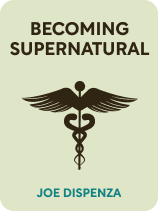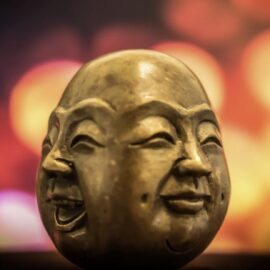

This article is an excerpt from the Shortform book guide to "Becoming Supernatural" by Joe Dispenza. Shortform has the world's best summaries and analyses of books you should be reading.
Like this article? Sign up for a free trial here.
How do your thoughts influence your life outcomes? What can you do to stop negative thoughts from running your life?
According to Joe Dispenza, the author of Becoming Supernatural, your life experiences are the result of feedback loops between your thoughts and emotions. A negative thought generates a negative emotion, kicking off a vicious cycle of negative thought loops which perpetuate themselves indefinitely.
Here’s how your thought-feeling loops create your reality, according to Dispenza.
How Your Thought-Feeling Patterns Create Your Reality
According to Dispenza, our whole experience of life is created by feedback loops between our thoughts and emotions—which we’ll call thought-feeling patterns. He says these thought-feeling patterns underlie all of your experiences and behaviors, so if you want to change your life, you must begin by changing the negative thought loops you’ve developed. This means you also need to get out of some of your habits and do things differently—which he describes as shifting to the “unknown.”
The thought-feeling pattern works like this:
- Your brain processes information and experiences in the form of thoughts which generate an electrical charge.
- That electrically-charged thought causes the brain to secrete chemicals.
- Those chemicals create the emotions you feel.
- The emotions become stored in your memories.
- Those emotionally-laden memories then affect how you’ll perceive, interpret, and respond to every subsequent experience you have.
- This means your thoughts will be influenced, and the cycle starts all over again.
(Shortform note: Because every emotion we feel is the result of electrical charges passing between neurons, researchers say that what we call “happiness” (or any other emotion) is just electricity. And in a 2019 study, researchers were able to quite literally “spark joy” by delivering electrical currents to subjects’ brains. By stimulating a brain region called the cingulum, they were able to trigger a spontaneous feeling of calm and happiness in three different patients. What particularly surprised the researchers was that after this procedure, the patients were still able to recall sad events from their lives, but that recall no longer evoked the sad emotional response.)
So, Dispenza argues, when you experience something very negative or traumatic, as many people do, you can get stuck in a pattern where that memory and the bad feelings associated with it continue to influence your thoughts in the future. Your brain will interpret future information and experiences more negatively, resulting in further negative emotions, and so on in an endless loop. So to make your life better, you must learn to interrupt those negative thought-feeling patterns so you can begin to think and feel more positively.
(Shortform note: Some of the negative thought-feeling patterns in your brain may be a result of childhood experiences that you don’t even consciously remember. Childhood defense mechanisms may help children cope with fearful or uncertain situations in a way that helps them at the time, but which may affect them negatively later in life when that defense mechanism is no longer necessary.)

———End of Preview———
Like what you just read? Read the rest of the world's best book summary and analysis of Joe Dispenza's "Becoming Supernatural" at Shortform.
Here's what you'll find in our full Becoming Supernatural summary:
- How to use the power of your thoughts to transform your physical reality
- Why you may be trapped in a vicious cycle of negativity
- A unique meditation method you can use to reprogram your subconscious






